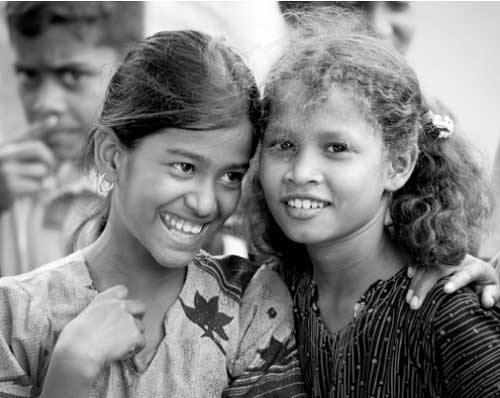Monday Feb 16, 2026
Monday Feb 16, 2026
Saturday, 8 April 2017 00:00 - - {{hitsCtrl.values.hits}}
BasicNeeds Sri Lanka (BNSL), a dedicated international Non-Governmental Organisation (NGO), with roots spanning over 14 territories all over the world, completed a little over 14-years long journey in the island.
Founded in year 2000 in the UK, BasicNeeds is an international NGO which is pursuing a vision to make sure that the basic needs of all people living with mental illness and epilepsy throughout the world are met and their basic rights are recognised and respected. 
BasicNeeds Sri Lanka began its operations in Sri Lanka in October, 2003 and since then over 47,000 people with mental illness or epilepsy, their carers and family members have found relief through their programs conducted in various parts of the country, mainly in the south and areas affected by the war.
Following successful implementation of the initial program to promote and protect the needs and rights of children with, and vulnerable to, mental health problems, BNSL selected Batticaloa District for their second project. The area was chosen after observing the need for such a program for children and adults in the region, because it had been directly affected by three-decades of violent conflict – with severe physical and psychosocial impacts.
The physical needs were being gradually addressed, however the psychosocial needs of both adults and children continued to be neglected. That was exactly why BNSL stepped in.
Various mechanisms were used in addressing the issues and one of them was working with Children’s Clubs (CCs) to build resilience among children, using the Child-to-Child and Open Dialogue approaches to educating the educators about children’s wellbeing while addressing their own mental health problems.
The project wanted to create space for children to gain knowledge, capacity and agency; to accommodate children’s need for creativity, support and security.
Children’s Clubs was a concept that the National Child Protection Authority introduced in 2006 to incorporate the voices of children in the development process. However, with minimal financial allocations for the purpose, the clubs, registered under the Department of Child Care and Probation, soon became inactive. But BNSL identified its potential to facilitate the formation of friendships, the building of trust and co-operation and the strengthening of social relationships and connections. The project revived 16 dormant Children’s Clubs and helped form 10 new ones in the Batticaloa District, with a total of 1,300 members.
During the Children’s Club meetings, BNSL initiated a series of information-sharing and capacity-building exercises on different subjects, beginning with organisational development aspects like how to conduct meetings, record minutes, handle finances and networking. Participation in club related activities contributed to improved wellbeing of children as they consider the clubs a safe place, eventually fulfilling the entity’s expectations.
Last year, the Children’s Clubs took up a new initiative: to look at their own community, identify pressing issues and their causes and examine how they affect children’s wellbeing. Working on a ‘One-Year Action Plan’, each club addressed or mitigated the issues while 24 MOUs have been signed between the Divisional Secretary, ESCO, implementing partner of BasicNeeds Sri Lanka and the clubs, outlining the Action Plans and the roles and responsibilities. Child Rights Promotion Officers (CRPOs) are now supporting the efficient functioning of the clubs, taking BNSL’s intentions to the next level.
BNSL has already achieved significant results. Children’s Clubs have received much praise and acknowledgement from parents, community and the government. The CCs and the government stakeholders are now communicating directly with each other to address various issues that affect children’s wellbeing, including their performance in schools. Issues of early child marriages, child abuse and school dropouts are reported and addressed quickly. Many of the actions taken have been unprecedented and the children are increasingly able to hold adults and officials accountable.
However, creating an environment conducive to children’s wellbeing would not be possible without a deeper understanding about mental health by parents, teachers and officials. To address this issue BNSL trained 355 educators on mental health and teaching methods focused on children’s wellbeing. The lack of two-way communication between the two parties was also solved by introducing the concept of Open Dialogues – conversations between children and parents and children and teachers enabled by trained facilitators. This was a key mechanism for the self-expression of children, with hundreds of children taking the opportunity to talk about their feelings during 62 open dialogues held bi-annually in school premises. As the project progressed to its fourth year, children had steadily gained the ability to be active agents in their own development. In parallel, parents, educators, and government officials, have become more receptive to addressing the needs and priorities of children. In effect, children are using their individual and collective strength to influence adult decision-making through the initiative. BNSL has made vast strides in making the lives of children more secure and happier, ensuring their right to education, healthcare, security and protection are effectively addressed.